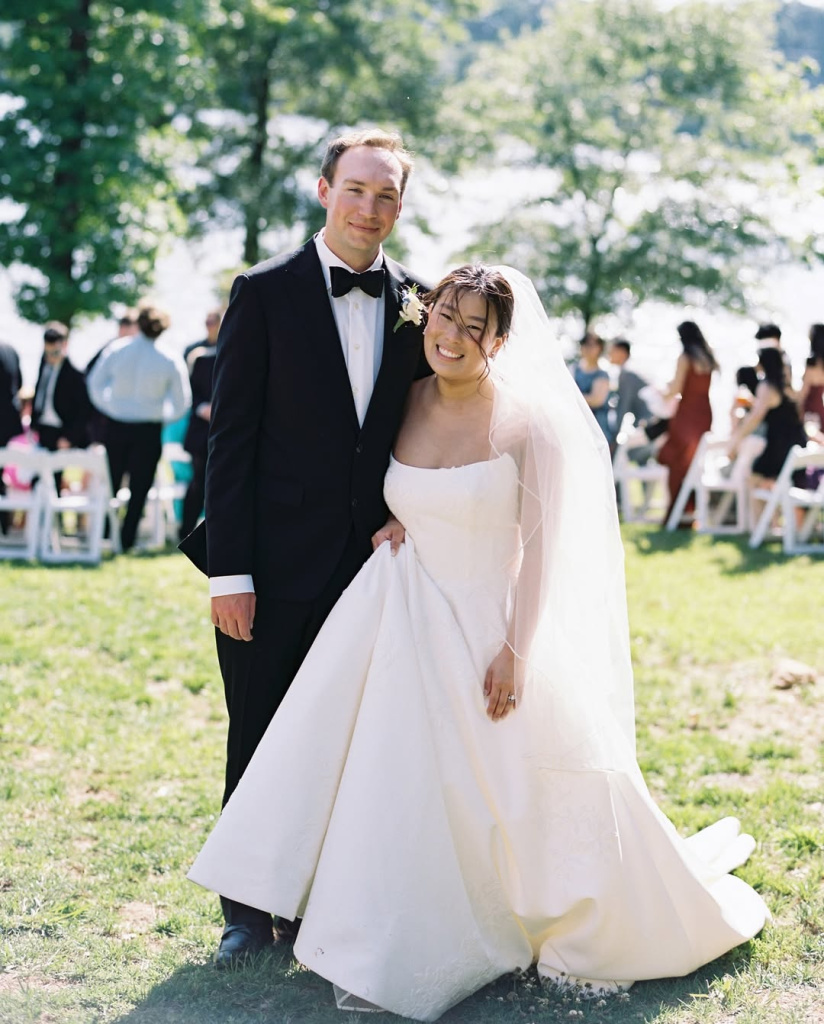Friends With Benefits Meaning: What It Is and How to Decide if It’s Right for You
- Author: Natali Grace Levine
- Reading time: 6 min 37 sec
- Publication date: 10/29/2024
- Updated: 02/12/2026
- Friends With Benefits: A Clear Definition
- Why People Choose Friends With Benefits
- Important Considerations Before Starting an FWB Relationship
- Benefits of a Friends With Benefits Relationship
- Setting Boundaries: Practical Tips for a Healthy FWB Arrangement
- Is Friends With Benefits Right for You? Questions to Ask Yourself
The world of relationships has never been more diverse, with people exploring various types that align with their unique values, goals, and lifestyles. One such arrangement is the “friends with benefits” (FWB) relationship, a setup that many find liberating, but that also raises a lot of questions. So, what exactly does this mean, and how do you know if it’s right for you?
A friends-with-benefits relationship essentially combines friendship with physical intimacy, allowing two people to connect on an intimate level without the pressures and obligations of a committed, romantic relationship. While it sounds straightforward, navigating an FWB relationship can be surprisingly complex. Here’s a deep dive into what it involves, the pros and cons, and some key insights to help you decide if it’s the right fit for your life.

Friends With Benefits: A Clear Definition


In simple terms, a friends-with-benefits relationship is one where two people enjoy a friendship that includes physical intimacy, without the expectation of a committed, monogamous relationship. This setup often appeals to those who may not want a traditional relationship due to personal or professional priorities, those who value independence, or people who simply enjoy the freedom of a casual connection.
Unlike traditional dating, an FWB arrangement doesn’t involve romantic milestones like meeting each other’s family, celebrating anniversaries, or planning a future together. It’s meant to be a low-pressure alternative to dating, allowing each person to prioritize personal goals while still having the companionship and intimacy a close friendship provides.
Why People Choose Friends With Benefits


FWB relationships have become increasingly popular as people move away from traditional relationships to explore flexible and alternative ways of connecting. Here are some common reasons people choose this setup.
Busy Lifestyles
Many people have packed schedules and may feel they can’t devote the time required to maintain a romantic relationship. FWB arrangements offer intimacy without the time commitment of a traditional partnership.
Focus on Self-Discovery
Some people are in a stage of self-growth and prefer focusing on personal development, work, or other passions. FWB provides companionship and intimacy without requiring someone to settle down before they feel ready.
Emotional Safety
For those who want a safe and familiar connection without a major emotional commitment, FWB can feel secure. The friendship provides a foundation of trust, which can make this type of relationship feel more stable and supportive than a one-time fling or hookup.
Enjoying Intimacy
Physical intimacy can be a natural and fulfilling part of life, and an FWB arrangement allows people to explore it in a comfortable, no-strings-attached environment.
Important Considerations Before Starting an FWB Relationship


Before diving into a friends-with-benefits arrangement, it’s essential to assess whether this type of relationship aligns with your personal values, goals, and emotional needs. Here are some points to consider.
Your Ability to Separate Emotions
Emotional attachment can develop, especially when spending time together in an intimate setting. Some people can keep things casual, while others may struggle, especially if they begin to develop deeper feelings. Be honest with yourself about whether you’re able to maintain emotional distance, as this can save you from potential heartache later on.
Defining Expectations Clearly
Clear boundaries are crucial in an FWB relationship. Discussing and agreeing on what each person wants from the arrangement helps prevent misunderstandings. Will you see each other exclusively, or are you both free to see other people? Clarifying these points can go a long way in preserving the friendship and avoiding hurt feelings.
Balancing Friendship and Intimacy
Since the foundation of an FWB relationship is friendship, it’s important to consider how intimacy might affect your dynamic. If you both can manage a balance between friendship and physical connection without blurring lines, FWB may be a good choice. Otherwise, it’s worth considering how you might feel if boundaries become complicated.
Long-Term Compatibility
An FWB relationship can feel casual and liberating, but it’s typically more temporary than a traditional relationship. Knowing that it may naturally come to an end or shift over time is something to consider, especially if you’re not looking to get emotionally invested.
Handling Potential Jealousy
Even in an FWB setup, it’s natural to feel possessive or jealous from time to time. Think about how you might react if your friend-with-benefits starts seeing someone else seriously or brings a date to a social event. It’s okay to feel this way—what’s most important is to address any feelings that come up honestly and respectfully.
Benefits of a Friends With Benefits Relationship


Every FWB relationship is different, but many people find that it offers specific benefits that traditional relationships don’t. Here’s a closer look at some of these.
Freedom and Independence
FWB relationships allow people to maintain personal space and pursue their goals while enjoying a level of intimacy. You have the flexibility to date or explore other interests without the need for constant compromise or commitment.
Deeper Friendship Bonds
Adding intimacy to a friendship can strengthen it by creating new experiences, trust, and mutual understanding. This connection can also make the relationship more fulfilling than a casual hookup because you’re already comfortable with each other.
Less Pressure to Perform or Impress
Because FWB is based on friendship, the expectations are often lower than in romantic relationships. There’s less pressure to impress, plan elaborate dates, or meet relationship milestones, making it more relaxed and enjoyable for both parties.
Opportunities for Self-Exploration
FWB relationships can be a safe way to explore your own boundaries, preferences, and desires without the emotional weight of traditional dating. This setup can be especially valuable if you’re still figuring out what you want in a partner or relationship.
Setting Boundaries: Practical Tips for a Healthy FWB Arrangement
If you decide to pursue an FWB relationship, setting clear boundaries is essential to keep things smooth and enjoyable. Here are some practical tips.
Define the Scope of the Relationship
Decide what “friends with benefits” means to each of you. Are you only connecting physically? How often will you see each other? Are sleepovers or spending the night allowed? Setting clear guidelines can help prevent misunderstandings.
Regularly Check In
Feelings and circumstances change over time, so checking in with each other can help ensure that both parties are still comfortable with the arrangement. These don’t have to be formal check-ins, but a quick conversation here and there can go a long way in keeping things on track.
Handle Emotions Openly
FWB relationships don’t mean emotions aren’t involved. If one of you starts to feel attached or uncomfortable, it’s better to discuss it openly. This way, you can avoid hurt feelings and adjust the boundaries if necessary.
Respect Each Other’s Independence
Since FWB relationships are meant to be casual, respect each other’s freedom and personal lives. Discuss what happens if one of you starts dating someone else or wants to end the FWB arrangement, as this helps establish a foundation of trust and respect.
Recognize When It’s Time to Move On
FWB relationships often work best when both people are on the same page. If one person develops feelings or if the arrangement becomes too complicated, it may be time to reassess. Sometimes, the healthiest choice is to return to a platonic friendship or move on entirely.
Is Friends With Benefits Right for You? Questions to Ask Yourself


Before committing to a friends-with-benefits relationship, take a moment to reflect. Here are some guiding questions to help clarify your readiness for this type of arrangement:
- Do I feel comfortable separating emotional and physical intimacy?
- How will I handle feelings of jealousy or attachment if they arise?
- Am I clear on what I want from this relationship, and can I communicate it openly?
- Do I believe that intimacy is possible without expecting long-term commitment?
- How do I typically respond to casual intimacy? Does it leave me feeling fulfilled or empty?
- Am I comfortable with a relationship that may not offer emotional support or exclusivity?
- Can I openly communicate my boundaries and listen to theirs without feeling defensive or misunderstood?
- How would I feel if my friend-with-benefits began dating someone seriously?
- Am I seeking companionship to fill a void, or does this arrangement genuinely appeal to me?
- Am I able to maintain a friendship without developing romantic expectations over time?
- Do I have a history of becoming attached easily in relationships?
- Would I feel comfortable if our mutual friends knew about the arrangement?
- Am I currently looking for a deeper connection that an FWB relationship may not provide?
- How will I handle it if my feelings or needs change over time?
- Do I feel confident that I won’t become overly dependent on this person for emotional support?
- Am I prepared to discuss openly what I need physically and emotionally in this arrangement?
- How will I manage potential jealousy if we’re both dating other people?
- Do I feel emotionally stable enough to navigate the dynamics of an FWB relationship?
- Am I prepared to respect their boundaries and decisions, even if they conflict with mine?
- Is there any part of me that is hoping this relationship will become more serious?
- Would I still want this person in my life if the physical aspect ended?
- Am I comfortable if this relationship is temporary and may not lead to anything deeper?
- Will I be able to stay honest with myself about my needs and feelings throughout?
- Do I feel secure enough in myself to handle possible changes or an eventual end to this arrangement?

Friends-with-benefits relationships offer a unique balance of intimacy and independence that many people find fulfilling. However, they also require strong communication skills, self-awareness, and mutual respect to succeed. Whether you choose to explore an FWB arrangement or pursue a different path, remember that what matters most is finding a relationship style that feels comfortable and genuine for you.
Approach this choice with honesty, confidence, and a clear understanding of your own needs. And remember, no matter what you decide, you’re free to explore and define relationships on your own terms.














